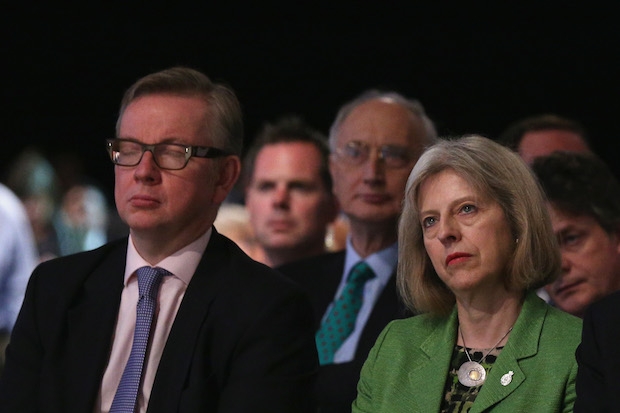The row between Michael Gove and Theresa May over how best to tackle Islamist extremism in schools is typical of how tense things get between these two whenever the subject of Islamist extremism arises. Gove wants to wage intellectual war on Islamist extremism, taking on the argument wherever it raises its head. May, heavily influenced by the civil servant Charles Farr, who is very much part of her circle, thinks that a distinction has to be drawn between extremism and violent extremism.
But this problem would never have arisen if Number 10 had made the Prime Minister’s writ run on this subject. Cameron in his 2011 Munich speech made clear that he wanted even non-violent extremism tackled:
‘Now, you might say, as long as they’re not hurting anyone, what is the problem with all this? Well, I’ll tell you why. As evidence emerges about the backgrounds of those convicted of terrorist offences, it is clear that many of them were initially influenced by what some have called ‘non-violent extremists’, and they then took those radical beliefs to the next level by embracing violence. And I say this is an indictment of our approach to these issues in the past. And if we are to defeat this threat, I believe it is time to turn the page on the failed policies of the past. So first, instead of ignoring this extremist ideology, we – as governments and as societies – have got to confront it, in all its forms.’
But Downing Street has simply not followed through on this speech in a prolonged and committed way. First, Nick Clegg was allowed to give a speech distancing himself from it and suggesting Cameron was speaking only for the Tories which gave recalcitrant civil servants the excuse they needed not to implement this agenda. Second, Cameron has failed to make the Home Office adopt this approach. If he had, this row would not be happening today.







Comments